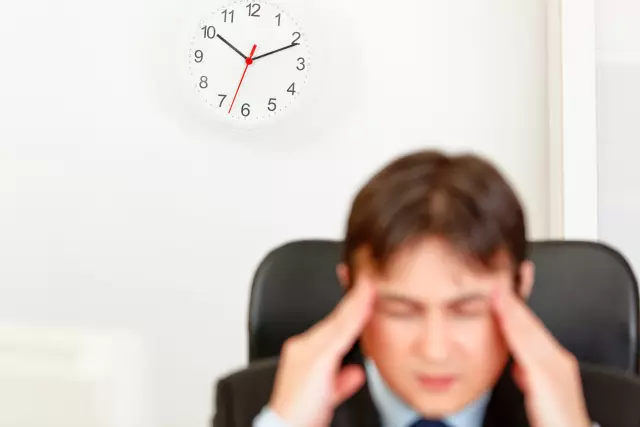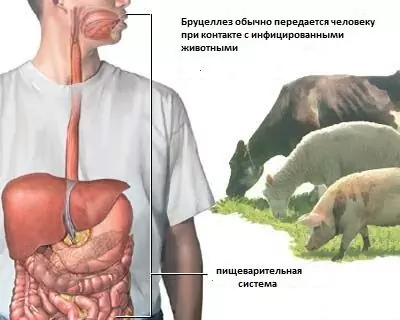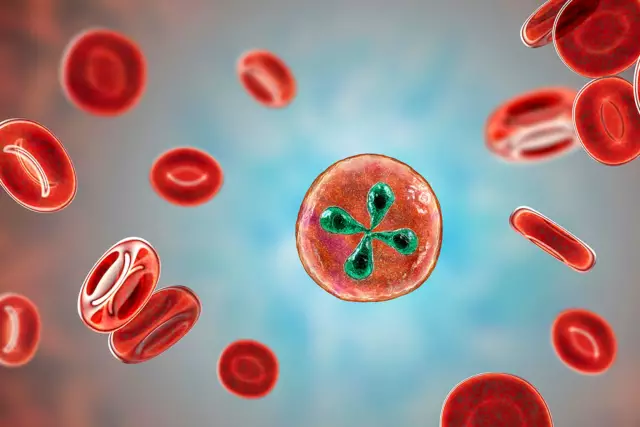- Author Rachel Wainwright wainwright@abchealthonline.com.
- Public 2023-12-15 07:39.
- Last modified 2025-11-02 20:14.
Effects of stress on humans

In society, any nervous disorder is considered stress, and its extreme manifestations are hysteria. From the point of view of medicine, hysteria and neurasthenia are mental disorders and must be corrected by specialists in psychiatry. However, the effects of stress on humans are not limited to neurological disorders.
The term "stress" originated in medicine from physics, where it means the stress of the system due to the force applied from the outside.
The human body as a single system is daily under pressure from external factors. Stressors can be environmental causes:
- Air pollution,
- Jumps in atmospheric pressure;
- Magnetic storms;
- Sudden changes in air temperature.
Medical stressors are any diseases (from traumatic injuries to infectious ones), social - conflict situations in a team, society. The impact of stress on a person is great - it negatively affects physical and psychological health.
Medical aspects of stress
In 1926, the founder of the theory of stress, Hans Selye, published his observations of patients suffering from various diseases. The results were striking: regardless of the disease, everyone had a loss of appetite, muscle weakness, high blood pressure, loss of aspirations and desires.
Hans Selye called stress the same reactions of the body to any external influence.
The most powerful stressor, Hans Selye believed, is lack of purpose. Also, in a state of physiological immobility, the human body is more susceptible to the development of diseases: stomach ulcers, heart attack, hypertension.
The effect of stress on a person changes the conditions of life. For example, with strong positive emotions, the vitality of the body increases sharply, this is ensured by high blood pressure. A person, having fulfilled his dream, feels a loss of appetite and muscle weakness - when exposed to negative emotions, a similar loss of strength is perceived very painfully.
Stress, in fact, is an innate reaction of the body, which enables a person to adapt to life in new conditions. Therefore, in medicine, it is called adaptation syndrome.
Effects of stress on human health
The development of stress in every person occurs according to a single mechanism. In contact with a stress factor, the central nervous system announces an alarm. The further reaction of the body is not controlled by the will of a person, but is carried out by the autonomic, independent nervous system. The mobilization of vital organs and systems begins, guaranteeing survival in extreme circumstances. Due to the excitation of the sympathetic nervous system, breathing and heartbeat become more frequent, and blood pressure increases. The physiological effect of stress on human health ensures the centralization of blood circulation: lungs-heart-brain. The "flight and fight" hormones are released: adrenaline and norepinephrine. People experience dry mouth and dilated pupils. Muscle tone increases to the point that it is often manifested by trembling legs or arms,twitching of the eyelids, corners of the mouth.
With the further development of the adaptation syndrome, the effect of stress on human health is expressed in the reaction of the organism to adapt to new conditions of life.
Impact of stress on the human body
In the active stage, hormones of the "second line of defense" appear - glucocorticoids. Their action is aimed at emergency survival at the expense of the body's internal reserves: all liver glucose reserves are used, their own proteins and fats are broken down.
If the reaction continues with depletion of vitality, the effect of stress on the person continues. The "alarm" mechanism is again activated, but there are no internal reserves. This stage of stress is final.
All the forces of the body under stress are directed to the work of the central organs: the heart, lungs and brain, therefore the rest of the vital organs at this time suffer from a lack of oxygen. In such conditions, stomach ulcers, hypertension, bronchial asthma, migraine-like pains, tumors of peripheral organs (cancer) can develop.
With a protracted course, the effect of stress on the human body is manifested not only by the development of diseases, but also by the depletion of the nervous system. This condition is called neurasthenia in medicine. In neurasthenics, all organs hurt, but most of all, the head. A person understands that his nerve forces are exhausted and considers such a condition to be a syndrome of chronic fatigue. From the point of view of pathological physiology, this is nothing more than a protracted adaptation reaction.
The effect of stress on a person's condition
The general tone, that is, the mood of people depends on the hormonal background. Having set a specific goal for himself, a person wakes up feeling full of strength for any accomplishments. The psychological mood is set by cortisol - the main anti-stress hormone. Its content in the blood in the morning varies greatly depending on the mood for the coming day. Under normal conditions, on the eve of the working day, the content of anti-stress hormone is much higher than on the weekend.
When the impact of stress on a person's condition reaches a critical level, the morning does not bode well. Therefore, the whole day is considered “spoiled”.
A person loses a sense of the correct assessment of what is happening. The surrounding events and influences are perceived inappropriately to their strength. Excessive demands on others, for example, as on oneself, are often not justified. Often, the impact of stress on a person aggravates the course of chronic diseases. They begin to escalate, as they say, “out of schedule”. Not in autumn and spring, during periods of planned therapeutic measures, but in winter and summer.
Impact of stress on human behavior
In an unstable state, aspirations and goals are chosen by a person, without taking into account his own capabilities. Any desire to achieve something, in fact, a negative emotion, becomes positive when the desired result is achieved. If the goal remains unattainable, the emotion becomes a strong stressor.

In extreme conditions, the influence of stress on human behavior is especially noticeable, depending on the initial state of health and temperament, as a character trait. Under the same conditions, people with different attitudes to the surrounding reality behave in completely different ways. According to Pavlov's classification, four types of higher nervous activity are divided, weak (melancholic) and three strong, but with some peculiarities:
- Unbalanced, reacting to any impact with a violent reaction - choleric;
- Balanced, inert - phlegmatic;
- Agile and balanced - sanguine.
The effect of stress on a person of different types of higher nervous activity is not the same. Strange as it may seem, but unbalanced people are the easiest to endure stress. The effect of stress factors on such a person ends with the level of the primary response of the body. Whereas in people who are balanced, stress goes into the second phase of adaptation, and then leads to exhaustion.
Found a mistake in the text? Select it and press Ctrl + Enter.






